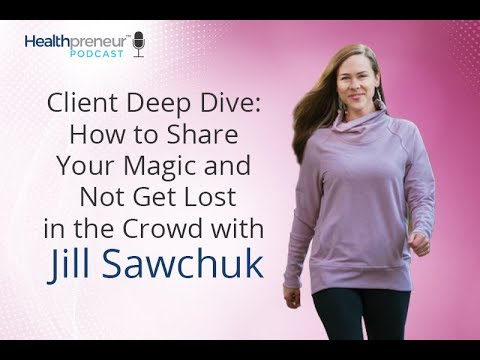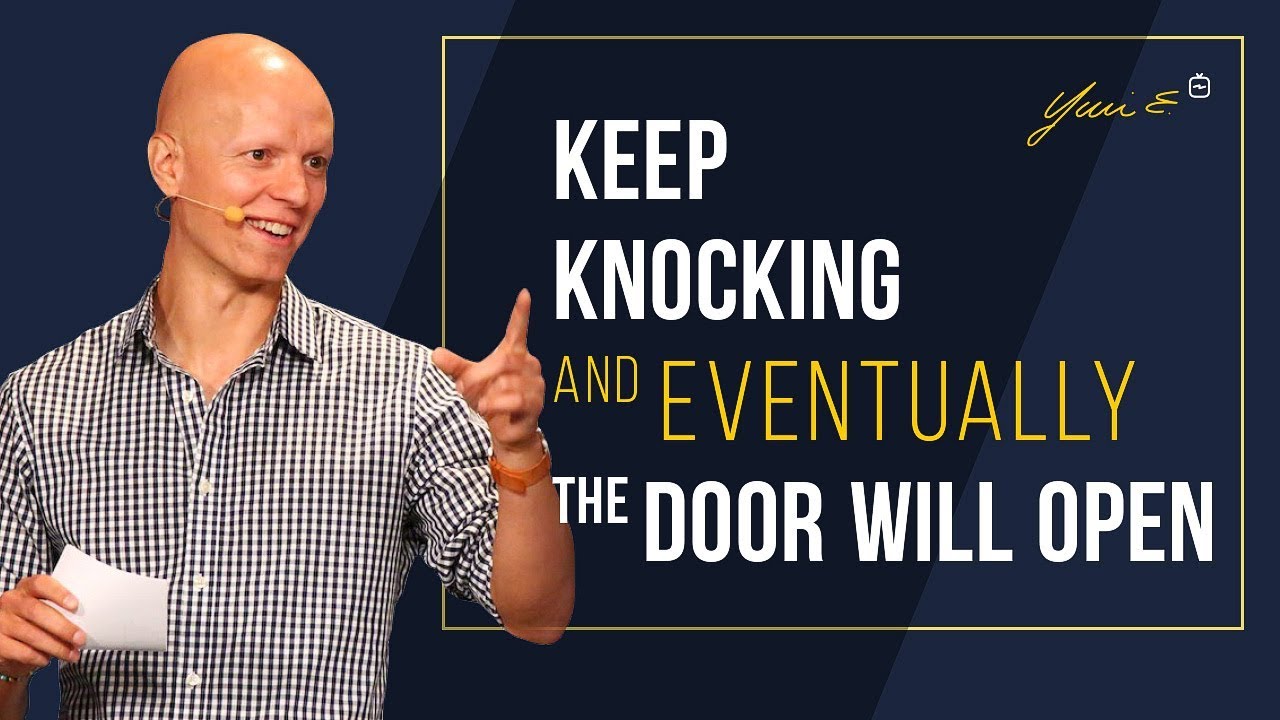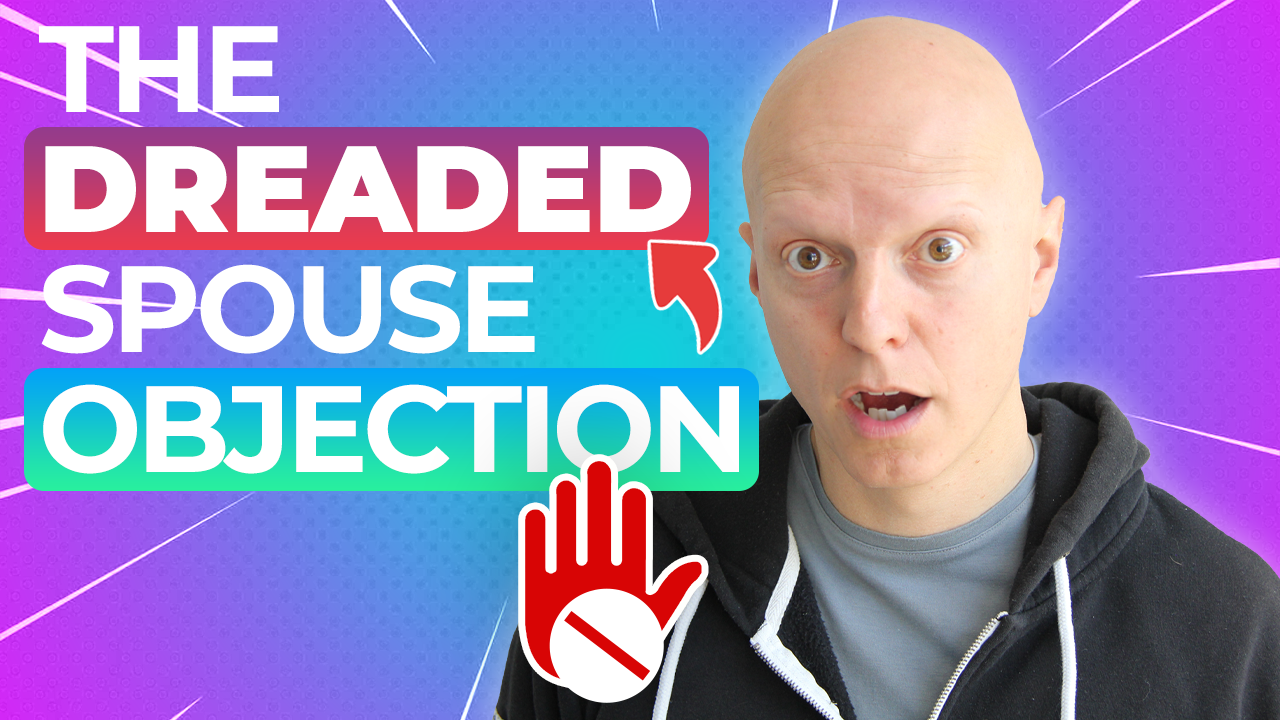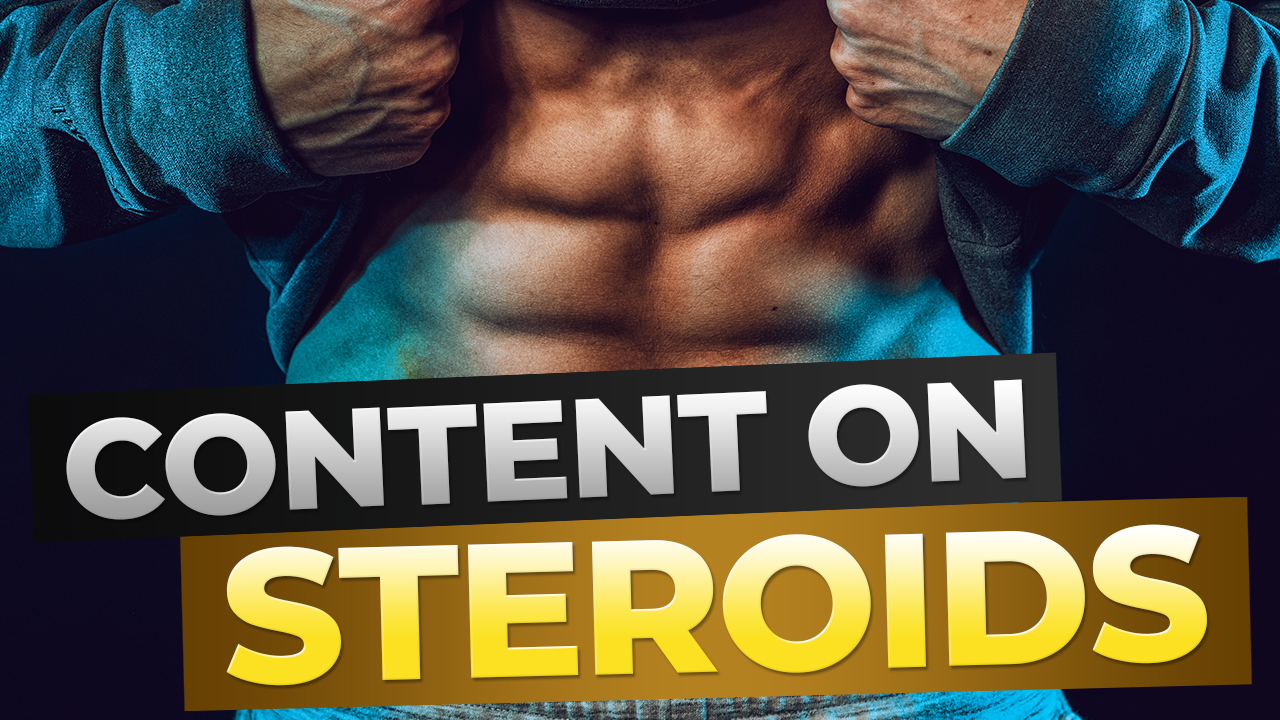How to Do What You Love (And Get Paid) with Lori Shemek
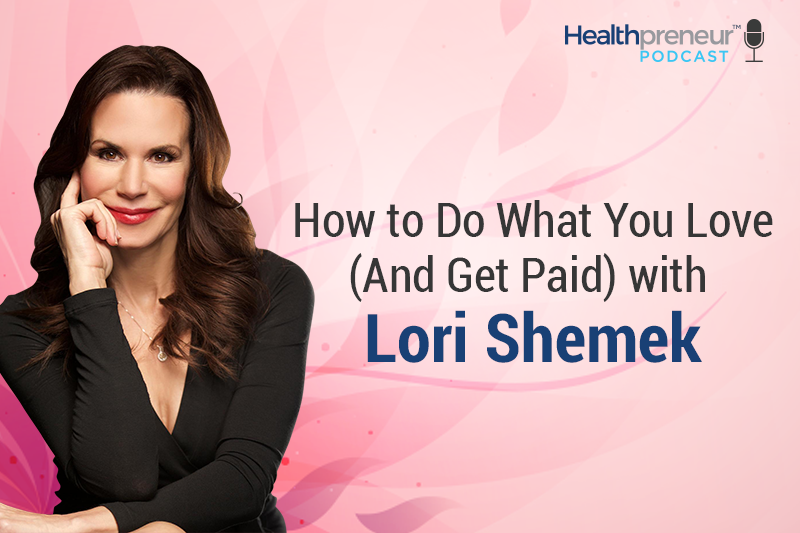
It’s another great day on the Healthpreneur Podcast! Today I’m speaking with Dr. Lori Shemek, a best-selling author, radio show host, and weight loss expert. She holds a doctorate in Psychology, she is a certified Nutritional Consultant, and she’s also a certified Life Coach.
Early in her career, Lori was a counselor. But when she realized how big an impact diet shifts made on her client’s health, she pursued something greater that married the two. Lori has made it her mission to help as many people as possible and spread the word about inflammation and its effects on overall health.
Lori and I will reflect on her background and how she transitioned into what she is doing today. We’ll also discuss her two books and her experience with both traditional and self-publishing. Tune in if you want to write a book, if you’re curious about how to start podcasting, and if you want some pro-tips on how to consistently spread your message.
In this episode Lori and I discuss:
- Where her inspiration to help people came from.
- The results she saw in her clients when she incorporated nutrition.
- Publishing vs. self-publishing outlets pros and cons.
- The road to optimal health.
- A new podcasting platform called Anchor Radio.
4:00 – 9:00 – Lori’s “why” and how she combined psychology with nutrition
9:00 – 13:30 – Lori’s books, how they’ve impacted her business, and the publishing process
13:30 – 18:30 – Narrowing your market, finding your clients, and addressing their pain point
18:30 – 23:30 – Putting yourself out there and staying consistent
23:30 – 26:00 – A podcasting platform and getting out of your comfort zone
26:00 – 30:00 – The Rapid Five
Transcription:
Hello and welcome back to the Healthpreneur Podcast. I hope you’re having an amazing week. It’s been a pretty good week for me, but every week finishes on a high note for me, to be honest with you.
Today I’m excited to bring to you an amazing person and entrepreneur in our space, Doctor Lori Shemek. You’ll enjoy this episode because Lori has an inspiring story about her journey. She’ll share that with us in just a few moments.
She’s also a best-selling author. She’s written a published book and a self-published book. We’ll talk a bit about how to know which one is right for you.
If you’re thinking about writing a book, should you be publishing it? Should you be self-publishing it? Lori is going to share her perspective, because she’s published a book with HarperCollins and she’s self-published a book. She’ll share the pros and cons of both, and some things that you need to keep in mind. If you’re thinking of writing a book, this will make a lot of sense.
Lori Shemek is a leading fat cell researcher and a recognized authority on inflammation and its role in weight loss, preventing disease, and optimizing health. That’s what her two books are on as well. One of them is called “How to Fight FATflammation,” and the other one is called “Fire-Up Your Fat Burn!”
She has been recognized as one of the top 16 health and fitness experts alongside Doctor Oz and many other amazing influencers. She’s a regular contributor to Fox News, a health expert for the ABC TV show, Good Morning Texas. She’s been featured on CNN, Fox News, Doctor Oz’s Best Life Magazine, Health, Shape, Woman’s Day, Redbook, Ladies Home Journal, and numerous others.
Without any further ado, let’s welcome Dr. Lori Shemek onto the show, and let’s dig into it. All right, Lori, welcome to the Healthpreneur podcast. How is it going?
Lori: It’s going great, Yuri, it’s so great to be here with you. Thank you for having me.
Yuri: Yes, it’s a pleasure to have you onboard. I’m always excited to speak with amazing people like you in our space who are doing great things and spreading the good word. It’s funny, I was thinking like we Healthpreneurs are kind of like the Messiahs, we’re just spreading the gospel, the good word, to as many people as possible.
Mainstream Media and Health
We were talking before we started recording this about how shows like The Doctors or Dr. Oz are mainstream now. It’s great that we have those shows because it’s made “alternative health,” or just “health awareness” much more mainstream.
But, I’m always amazed about how many people are still completely clueless about this stuff. Do you find that? Do you feel like you’re still climbing uphill as we try to share this message?
Lori: Yes. It’s interesting. I just had an interaction with somebody on Facebook who believes that they’re doing the right research. They posted research that essentially did not have much to do with what my post was about, but it was in response to my post.
The mainstream shows like Dr. Oz or The Doctors are great in terms of motivating people to take better care of themselves and educates them as well. But, I find that we, the people out there spreading the healthy message, don’t get enough time to educate the proper way.
A lot of misinformation gets out there and a lot of people take it, they run with it, and there you go.
Yuri: Yeah, that’s why it’s important for listeners to believe that it’s our responsibility to be better at business. If our business is more impactful, then we can get a message in front of more people. I don’t think many of us are going to be talking heads like Dr. Oz, where everything is taken care of and we can reach tens of millions of people like that.
We have to do the work. I’m excited to help others do that.
So you’ve written a few books, “How to Fight FATflammation,” and also, “Fire-Up Your Fat Burn!” How did you write a book? How does someone go from, “I’ve got this knowledge,” to writing a book and getting it out there?
Lori’s “why” and how she combined psychology with nutrition
Lori: Do you want me to start there or when I was a little girl?
Yuri: Whatever is most conducive to making sense of it all.
Lori: I’ll just start with why I do what I do. When I was a little girl, I grew up with a mother who was mostly ill with a constant stream of different health conditions. She had no support, no family, no husband, no money, and she was a single mother raising three young children, all on her own.
She was under enormous stress, and that combined with the health conditions resulted in me overseeing the family and taking care of things. My mother died at a very young age, 36, and left behind three young children with nowhere to go.
At her memorial service, I made it my mission, essentially, to help people. That’s what I wanted to do, because I saw how helpless my mother was, especially in her mindset. She felt like this was her lot in life, she had no choices, and that was it.
I firmly believe that what we say to ourselves and the thoughts we think have a huge impact, not just on our health, but in other areas such as business.
I went to school and became a family counselor. I had a side passion for nutrition and health. I wrote nutritional plans for my clients, and it was remarkable how my clients’ and their children’s health changed simply from changing their foods.
Years went on, and I decided to go back to school, get my degree in nutrition, and combine my background in psychology with my nutrition degree to help my clients have a better experience in terms of behavioral techniques, etc. I married the two, and created my own business.
And that’s why I do what I do now. That, over the years, led me down the road to writing these two books; my first, “Fire-Up Your Fat Burn!” and my last book, “How to Fight FATflammation.”
Lori’s books, how they’ve impacted her business, and the publishing process
Yuri: Awesome. What did the process look like for you? Were these self-published or published? What did that whole thing look like?
Lori: Yes. The first one was self-published. A lot of it was based on inflammation. My expertise is inflammation, as well. That book is a quick book to read if you need to get on the road to weight loss success right away.
My next book, “How to Fight FATflammation,” came out with HarperCollins. It was about inflammation and how inflamed fat cells are the core underlying cause of weight gain and core health, as you know. That book is about promoting optimal health and weight loss by reversing cellular inflammation.
Yuri: Very cool. Did you find that the books contributed to your brand and business? Did they have a positive impact? How did that look like for you?
Lori: It was a positive impact. When you have a book, you are seen as more credible in your knowledge. That is one. It bumped up my interview requests and speaking engagements. If I could recommend one thing for people to do, it’s to write a book.
If you have knowledge or expertise in one area, I highly recommend you do that. It helps you spread your message. Then, other people want to help you spread that message by inviting you on radio, TV, etc.
Yuri: What advice would you give someone who wants to write a book? What do they need to consider when deciding to publish or self-publish? What are some things they might not even be aware of?
Lori: Good question. Since I’ve done both, I can tell you that both have their benefits. If you get a good book deal, it’s a great advance. That’s a benefit. But, if it doesn’t sell well, then that’s not so great.
But, if you self-publish, you have the rights to the book. I can put “Fire-Up Your Fat Burn!” on sale, I can give it away, I can do whatever I want with it. With my HarperCollins book, they own the book. I can’t do that. I can’t do what I want to promote the book itself.
I can promote the book, which I do, but I can’t put it on sale. I can’t sell it in any way, shape or form, except on their platforms.
Yuri: Did you enjoy working with them as a publisher? Did you find that they were somewhat with the times, or still a little bit archaic like some of the other publishing houses?
Lori: They had their issues, for sure, but overall I enjoyed the whole process. It was a wonderful experience. But, in terms of marketing, I came in not knowing that you’re supposed to use part of your advance to market your book. They only do two months, and not that great.
I had no idea how to promote. I did the research and did what I could. Unfortunately, I learned how to do all that after the fact. My next book is going to be a whole different animal in terms of that.
I would say to be prepared to spend money on marketing and advertising your book. Make sure that you do pre-sale campaigns. Learn all those things before you even write the book.
Yuri: It’s funny because the book, in some ways, is the least important part of the whole equation. Unless it’s an amazing outlier that everyone wants to share. You’re competing with so many other books in the space so you must get it above the noise.
Lori: Right, that’s excellent. That’s what I didn’t know. I thought HarperCollins was going to take it and run with it.
Yuri: Totally. That’s why we’re here and talking about this. Maybe there’s someone listening who is writing a book, or thinking of one, and realizing, “Oh, my God, maybe I should think of the marketing of it.” It does make a big difference.
Outside of the book, when you look at your journey over the past couple years, what’s one of the biggest challenges you’ve faced in business? What did you learn from it, and how did you overcome it?
Narrowing your market, finding your clients, and addressing their pain point
Lori: I had a business coach. My whole goal was to help my clients create optimal health. She said to me “Lori, people just don’t wake up in the morning and decide they want to create optimal health. You must address their pain points.” I thought about it and realized that all my clients are overweight.
That’s when I decided to shift over solely to weight loss. In effect, they are creating optimal health when they lose weight. They are reversing inflammation throughout the body and so much more. It was a win-win for me to do that, and for my clients as well.
That was the first stumbling block for me. I thought everybody wanted to create optimal health, but it didn’t come out that way. It’s about addressing people’s pain points, whatever your business.
Yuri: That’s a good point. I talked about this briefly in the last episode. A lot of us health entrepreneurs are guilty of being idealists. We say, “This is what people need. This is the way it should be.” But a lot of times people just want to lose the weight, right?
We should meet them where they’re at, give them what they want, and then move them down a path where optimal health is just a byproduct of what they’re doing.
Lori: Right. Absolutely. They’re so happy once they start feeling that optimized health. Their life changes. I know you know this.
Another one is finding clients. I still struggle with that to this day. I’m in the media a lot, but that doesn’t translate to a lot of clients.
That’s part of what I do. It comes and goes. My clients get better, they go away, and I find more. It’s a constant flow, if you will, in or out. What I love about what you offer, Yuri, is that you say, “Okay, you don’t have to base your business solely on clients. It’s more of a machine that you can use. You can go on vacation, still make money, and serve a lot more people that way.”
Yuri: Thank you. I’ve noticed a huge change in the marketplace in the last 10, even five years ago. I talked about this at Healthpreneur Live. I think the biggest opportunity for businesses or entrepreneurs in any market right now is going back to the personal touch, like the one-on-one and the one-on-many.
Products are becoming so commoditized; whether it’s information, or even supplements in some cases. It’s having a balance of both. If you’re only providing a service, you’re missing out. If you’re only producing products, you’re missing out.
Just look at the lifestyle you want and building around that. If you still want to work with clients you can, but it’s on your schedule because you have other leveraged courses or products that are doing their thing as well.
But, I do think there has been a swing, a pendulum, in the market right now. There’s a huge opportunity for this personal connection. I think people will pay a premium for that type of service.
Lori: Some people absolutely need that personal touch. They need the accountability of a live person as opposed to a program, for example. You lose double your weight loss if you write down your goals. That’s a form of accountability. But some people need to go beyond that, they need a human being.
Yuri: They can lend themselves nicely to each other. It can start with the book, then people can ascend into working with you more closely.
Lori: Right, exactly.
The road to optimal health
Yuri: What motivates you to do what you do? What’s the driving force behind wanting to impact people and help them understand inflammation and help them lose weight? What’s the big driver there for you?
Lori: I want everyone to understand that they have control of their health. I’ve been so interested in nutrition and health since I was a little girl. My mother was in the nursing field, and she had tons of books on health and nutrition.
Even when I was a young child, I sat on the floor reading, perusing, and eating them all up. That has followed me throughout my life. I would say that my message and my mission, deep in my heart, is to help as many people as I can change their life for the better.
If we don’t have our health, what do we have, really? Not a quality life, that’s for sure.

Yuri: That’s great. That’s why I love this space. Everyone is coming from such a genuine place of – in some way, shape, or form – their own suffering which they want to help others avoid. It’s awesome. I’m stoked for all the work that you’re doing.
Lori: Thank you. The feeling is mutual, by the way.
Putting yourself out there and staying consistent
Yuri: Thank you very much. What do you think is one important skill or trait that entrepreneurs must have for lasting success?
Lori: Just one?
Yuri: You can name a few, if you want.
Lori: Number one, putting your introverted, shy self on the shelf. Take that step forward. Be brave and be more public about who you are. That’s important because that gets your message out there.
Believe me, if I can do it, anyone can do it. I was terrified to speak when I first started. It became, eventually, after the first couple times, fun to do. I never thought, in a million years, that I would love to do public speaking.
I just love it now. I never thought I’d be any good at it, and apparently, I am. The same goes for writing. I never liked to do a lot of writing when I was younger, and the last thing I thought was that I’d be writing for a living, in a sense.
Turns out that I ended up writing every day. I wrote two books, I write articles, blogs, etc. Even though you think that you may not be good at something, or you don’t like something, give it a try.
The next thing is to be consistent. That’s an important part of putting out your message, and creating a more successful business.
Yuri: I agree with that for sure. The consistency thing is huge. Something I learned from a coaching session with one of my mentors, Dan Sullivan, is that the world is very uncertain. They look to us for certainty. Part of that certainty comes from consistency.
It would be like watching a TV show, and saying, “What happened to Thursday nights at 8:00? It just disappeared?” It wouldn’t feel very reassuring to us. I think that the consistency component is massively important.
How does that show up for you? Does that mean consistent actions? Does it translate into the frequency or the publishing schedule you have for your content?
Lori: Yes. It’s about making a concerted effort every day to do something that is going to put out content. In terms of videos, I just started doing Facebook Live videos. Again, consistently. That helps get your message out there as well.
As you know, Facebook loves videos. That’s another important component. But yes, writing, writing blogs, working on my new book, all those things are just parts of what I do in terms of consistency. Seeing clients, making sure that I’m out there in social media, my Twitter, and my Facebook accounts. Any account out there is important.
I’m not sure if you are familiar with Anchor Radio.
Yuri: No.
A new podcasting platform called Anchor Radio
Lori: If you’re not technology minded, as I am not, there’s a format called Anchor where you can create your own podcast from your phone. It publishes to iTunes and all other major platforms. You can have your podcast very easily. If you consider it, you won’t believe how easy it is. It’s a great vehicle.
Consistency is important if you have a podcast. I eventually will have a full-fledged podcast, but not right now. Those are just a few of the things that I find are very important to getting your message out.
Yuri: Nice. That Anchor app could be very interesting for us. We’ve got a pretty good process with this podcast, but maybe it’s a click of a button, and half the stuff we’re doing is unnecessary.
It’s so cool how this stuff is available and just keeps coming out.
Lori: Right. I believe, if you have a podcast, you can just send it to Anchor. I’m not sure because it’s a brand-new platform. The great thing about it is that people can leave comments, and you can reply to them. They call in to your station. It’s a great way to get little healthy bites out there.
Yuri: Nice, very cool. I will check it out. Listeners, if you are aware of Anchor, awesome. If you’re not and you’re interested in doing a podcast, check it out.
I’m of big believer in mindset, and I think everything starts with mindset. What’s one limiting belief you’ve had to overcome on this entrepreneurial journey?
Lori: I would say never believing that you ever should settle for less than what you can be. I think that’s important, because it’s about facing our fears and taking steps towards what we want in our business and for ourselves.
Like I said earlier, just leaving the scared, fearful person behind on the shelf, and just stepping out of your comfort zone.
I would also say to value yourself. You deserve to be happy. You deserve what you want in life. It’s just up to us to educate ourselves and know we have the power to do that.
Yuri: Awesome. Good stuff, Lori, thank you so much for sharing that.
Lori: You are so welcome.
The Rapid Five
Yuri: Are you ready for the Rapid Five?
Lori: Okay.
Yuri: All right. Five questions, and you have no idea what they are. Whatever comes top of mind is probably the right answer, because I believe intuition, or your gut, is right most of the time.
One, what is your biggest weakness?
Lori: Staying motivated to get that content. Being consistent. Staying on top of myself to do it because of distractions.
Yuri: Let me expand upon that for a second. Speaking from my own experience, it’s challenging to stay motivated when you don’t see the feedback or positive reinforcement from your action. At least for me. Is that something you’ve experienced?
Lori: Exactly. Me, too.
Yuri: How do you get through that?
Lori: This is so funny. I always think I’m out there on Twitter or Facebook putting out little healthy bites. I think I’m just all by myself, putting this content out. Then, every so often, somebody will say, “You changed my life. You don’t know what kind of impact your book had on me,” or whatever.
I remember those, and that’s what drives and motivates me. There are many people out there who are listening to all of us. It’s our mission to help change their health.
Yuri: Beautiful. Love it. Number two, what is your biggest strength?
Lori: I would say it is overcoming what I believe is scary. Being brave when I feel fearful.
Yuri: That’s big. It’s a scary world as an entrepreneur sometimes. But it’s worth it.
Number three, what’s one skill you’ve become dangerously good at to grow your business?
Lori: I would probably say social media. If not social media, then writing.
Yuri: They tie in together beautifully, so it’s a good pairing.
Number four, what do you do first thing in the morning?
Lori: The first thing I do is say three things I’m grateful for. Right then and there, before I even move out of bed. That is the very first thing that I do in the morning. Then, I drink my water first, as soon as I rise, and go get some coffee.
Yuri: Love it. Awesome. Finally, complete this sentence. I know I’m being successful when…
Lori: When I feel consistent, and am proud of the work I’m putting out.
Yuri: Great. You should be, because you’re doing amazing things and transforming lives. Lori, thank you so much for being with us on the Healthpreneur Podcast. This has been a lot of fun. What’s the best place for our listeners to follow your work online?
Lori: Thank you so much for having me, Yuri. They can find me at DrLoriShemek.com. I have all sorts of information on health, and a wealthy, healthy life. Also, you can find me on Facebook, Twitter, and iTunes as “The Health Transformation Show!”
Yuri: Awesome. Lori, thank you once again for being with us, for sharing your journey, for sharing your highs and lows, for just being awesome, for what you’re doing, and for serving as many people as possible to achieve their goals. Thank you so much for sharing.
Lori: Thank you, Yuri. I feel the very same about you. I have so much gratitude for you.
Yuri: Thank you very much.
***********************************************************
Yuri’s Take
All right, folks, that is all the time we have today. I hope you’ve enjoyed this episode. No action steps from me today, I’m going to give you the weekend off from thinking. Enjoy whatever life throws your way, or whatever you throw life’s way.
Two calls to action:
One, please subscribe to the podcast. If you’re a first-time listener, welcome! If you’ve enjoyed this episode, we’ve got other amazing interviews and solo rounds that are geared towards inspiring you to move your business forward. What you do makes a difference.
You’re a health, fitness, or wellness entrepreneur, and what you do is very special. I’m here with this podcast to remind you of that consistently, and to remind you that the journey takes time. Overnight success is very, very rare.
You should be realistic with that, especially today, where all we see are the flashy highlight reels on social media. I want to bring to you the reality.
Be realistic about what is involved in building a business, because building a business and being an entrepreneur is tough.
But it’s highly rewarding.
It doesn’t have to be a struggle. You’re going to learn from other people, including myself, who have done some amazing things in their business to impact a lot of people’s lives. Now they live great lives instead of trading time for money and working themselves into the ground.
If that’s of interest to you, subscribe to the podcast. If you’ve already subscribed and you get all that, just fast forward what I just said.
Second, I’ve got an amazing book for you called “Health Profits Secrets.” It’s going to show you the four fundamental secrets to growing a successful business in the health and fitness space, specifically online. It also applies to any business offline as well.
If you want to discover that, and figure out where you score in those four key areas, you’ll actually get a score card inside the book, which will help you identify where your weaknesses are, how we can fill those gaps, and really move you forward to a much more profitable business.
You can grab the book for free over at Healthpreneurbook.com. That is all for today, my friends. Thank you so much for being with me. I appreciate your attention, I appreciate your loyalty, and I hope you have an amazing weekend. I will see you on Monday with another amazing solo round. For now, continue to be great, to do great, and I’ll talk to you then.
***********************************************************
Follow Dr. Lori Shemek At:
If you enjoyed this episode, head on over to iTunes and subscribe to Healthpreneur™ Podcast if you haven’t done so already.
While you’re there, leave a rating and review. It really helps us out to reach more people because that is what we’re here to do.
What You Missed
Our last episode featured Dr. Andra Campitelli where we chatted about being an entrepreneurial naturopath (because you’ve got to be both!), and some things that are not so naturopathic – like Sour Jujubes and snuggling up next to your laptop.
Dr. Andi is a leading naturopath, media expert, educator, writer, and speaker, and she is well-received by clients for her practical, evidence-based, and down-to-earth care. She is the CEO, co-founder, and formulator of Plan C, a supplement produced because, well, no one likes a hangover. You got that… a supplement cure for hangovers.
Tune in to hear Dr. Andi and I discuss how she has used public speaking to grow her business and establish her brand.
This is an excellent listen for Healthpreneurs who want to boost their client’s results and their business in the process.
Related posts
January 25, 2019
How To Share Your Magic And Not Get Lost in The Crowd With Jill Sawchuck
Hi Healthpreneurs! Welcome back.…
September 4, 2022
Influencing Buying Decisions (Even When They Use The “Spouse Card”)
Being in the business of health…
April 19, 2022
Put Your Content Marketing ON STEROIDS W/ These 3 Tips
Struggling to come up with great…


